Search Results

Jason
I'm Jason, and I am 38 years old. Early last year I was very sick. I had a fever that would not go away for over three months. Every day I broke 103 degrees, and at least six times I hit 106 degrees. I was getting bloodwork after bloodwork done, seeing doctor after doctor when finally, I met my oncologist, and he did a bone marrow biopsy. He called me the next week and told me I had stage 4 Hodgkin lymphoma (HL), and we needed to start tests immediately so we could expedite my chemo treatment.
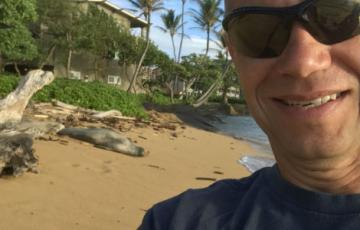
Jerome
Most importantly, the doctors, nurses, and researchers are true angles; wouldn’t be here without them. Dedicating their lives to saving others’, I am forever thankful. Not to mention the secretaries, volunteers, and administrators who are the lubrication to the operation, thank God.
It has been a while, but here’s the summary: Diagnosed with ALL in Oct. of 1986, remission shortly after in Dec. of 1986, then 2.5 years of chemotherapy and a few weeks of radiation therapy. It all changed my life... for the better.
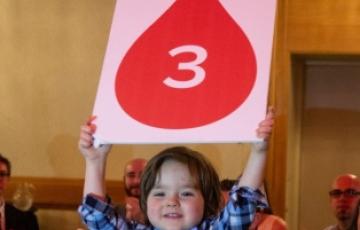
Stanley
Stanley was only 13 months old when he was diagnosed. He was a happy and healthy baby boy. Showing no previous symptoms or signs of sickness, Stanley was rushed to the ER one late Wednesday night because his parents, Joe and Krissi, thought he might have swallowed something. That was December 16, 2015. By 8p.m.

Nikolas
Hello, my name is Nikolas Davison. I am 14 years old (almost 15 in July) and have battled acute lymphoblastic leukemia (ALL) for the past four years, but I am now done with chemo and getting my port removed soon.
In November 2016, I was misdiagnosed with appendicitis and was taken to the hospital by my father, where they took my blood and ran several tests. This was a painful experience to go through and I was very scared. After more tests, they knew that I had cancer. I was shocked, scared and horrified. I never thought in a million years that I would get cancer.

Alessandra
At the age of 14 I was diagnosed with stage 4 Hodgkin lymphoma. The doctors only gave me a 25 percent chance to live. I still remember the day I walked into the ER with my mom to get my CT scan done. Post exam, the doctor muttered,“You have cancer, but don’t worry just yet. The test tomorrow will let us know more.” Before I knew it, the next day, I found myself staring at the operating room ceiling, numb to the thought that it was all too real. Hours of surgery later, we found out the cancer had spread through my neck, entire chest and lungs.
Leimomi
I was diagnosed with non-Hodgkin’s lymphoma in 1998 at the age of 38. My participation in a clinical trial included a stem cell transplant, five chemotherapy sessions, and full-body radiation treatments. I am an advocate for participation in clinical trials, which paves the way for new treatments or prevention methods. Although it was a rough experience, the responsibility of being a single mom kept me going. My inspiration for surviving was my son Brian who was 12 years old at the time. He was born with microcephaly (small brain) which made him totally dependent for all his needs.

Nicolas
My name is Nicolas and I am 14 years old. Before my diagnosis I was a completely healthy child, in fact I was rarely ever sick. I played baseball, had straight A’s, and recently had recently got a new puppy. This sense of normalcy came to a screeching halt on January 13, 2018. That’s the day I was admitted into the pediatric ICU and the day I first heard the words, “you have cancer.” My family and I were devastated.

Linda
In July of 2009, I was diagnosed with small lymphocytic lymphoma (SLL) after a biopsy of the lymph nodes in my neck. Of course, I did what everyone says not to do. I went online to read about it. I read there was no cure, and the average lifespan after diagnosis was 10 years. I was 57 at the time, and all I could think was that’s not long enough. I don’t even have grandchildren yet!

Katie
Only a couple weeks into my first year of my graduate program, I was diagnosed with acute myeloid leukemia (AML) with FLT3 mutation. I was only 21 years old and my entire world got flipped upside down. My whole life changed and I was about 1,000 miles from home.
Don
Like so many individuals diagnosed with blood cancer, I had zero thought that I might be ill, much less with a disease that could take my life.
I had signs and symptoms that something wasn’t quite right in my body, annoying things like shortness of breath, lightheadedness, and fatigue. However, nothing registered in my head until after my diagnosis.
It’s September 2005, and I am pretty much invincible, bulletproof! I could, in fact, leap tall buildings in a single bound! Yes, in my mind I was Superman!

Rachel
My name is Rachel Iruegas, and on June 4, 2019, I heard the dreaded words that no one ever wants to hear: “you have cancer.” I was diagnosed with stage 2B Hodgkin lymphoma (HL). In that moment, my mind went blank and my body numb. I honestly do not remember much of what my oncologist said after that. I knew I was in the room with her, surrounded by my family, but my body wanted to be somewhere else – anywhere else but there. I knew in that moment that my life was going to completely change, and I had no way of stopping that.
Adam
My wife left me after 33½ years of marriage (37½ including dating) and 2½ years into my remission. I read stories about a spouse, usually a male for some reason, who up and left his partner either during active treatment or when everything looked like the patient, the person, would live, but I never thought any of that would happen to me, and it sure as heck did. She fell out of love with me, with caring for me, with helping me. I may have been an ass, but I wasn't an asshole ― you know what I mean? She probably feels she didn't deserve any of this either, but . . .
Coping Tips for Parents
Throughout your child's illness, you'll be focused on comforting your child and helping him or her cooperate with treatment. You may also need to explain what's happening to your other children, answer relatives' questions and perhaps make alternate arrangements for work and childcare. All along the way, you'll be coming to terms with your own feelings and choices.
Diagnosis
Diagnosing hairy cell leukemia usually involves a series of tests, including blood tests and bone marrow tests.
Finding a Clinical Trial
If you're interested in the possibility of a clinical trial as a treatment option, talk with your doctor first. He or she can help you find an eligible trial.
Choosing a Treatment Center
Selecting a cancer treatment center may depend on several factors including your specific diagnosis, location and insurance coverage. You will want to choose an accredited treatment center with the medical expertise to provide the type(s) of treatment you will need.
Communicating With Your Partner
Discussing experiences, feelings and concerns with your partner(s)—giving each other the chance to talk and listen—is an important part of maintaining or improving your quality of life. Your partner may have his or her own concerns, such as being afraid of hurting you during sex, feeling guilty or selfish for wanting to be intimate with you or not knowing how to talk about their feelings. You may also want to talk about seeking help from a professional, such as a couples counselor or sex therapist.
Diet Guidelines For Immunosuppressed Patients
Food safety is important during and after cancer treatments. The immune system is often weakened by cancer treatments, making the body more susceptible to foodborne illnesses.
Neutropenia is a condition where you have lower-than-normal levels of neutrophils (a type of white cell). If you have neutropenia, following food safety guidelines are especially important. Be sure to follow all food handling guidelines to help protect you from bacteria and other harmful organisms found in some mishandled food and beverages.
Stem Cell Transplantation with High-Dose Chemotherapy
High-dose chemotherapy and stem cell transplantation are important parts of treatment plans for eligible, recently diagnosed myeloma patients.
Refractory and Relapsed
Some patients with myeloma have refractory disease. Refractory myeloma is cancer that does not respond to treatment. After a time, almost all myeloma patients will experience relapse, which means the cancer returns after a successful course of treatment. The treatment for relapsed and refractory myeloma is affected by many factors including previous therapy, rate of relapse, patient health, and genetic abnormalities.
Treatment for Relapsed and Refractory MyelomaTreatment for relapsed or refractory myeloma may include:
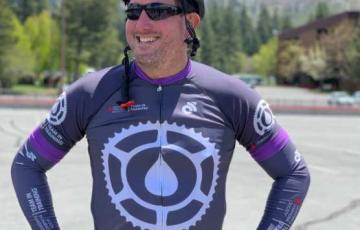
Jamie
After he was diagnosed with blood cancer in 2013, Jamie was told by doctors that he’d never walk again, let alone ride a bike. Despite those predictions, he finished a 540-mile ride in June 2019 to raise money for The Leukemia & Lymphoma Society (LLS).

Ira
In August 2014, at age 48, I was literally in the best shape of my life. I was an avid cyclist, averaging more than 150 miles per week, leading groups of riders for my cycling club, and completing multiple 100-mile century rides in a single season. Over the course of just a few days, while cycling, I noticed a sudden setback in my performance. Virtually overnight I lost stamina, speed, and endurance. Roads or hills I had ridden countless times before instantly became unmanageable. Thinking I was battling the flu or a virus, I visited my doctor. Blood tests revealed an abnormality.
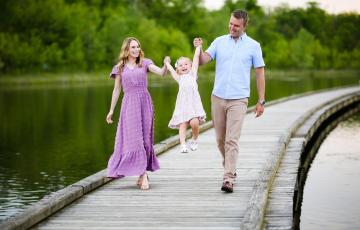
Alicia
You never think it will happen to you until it does. Hearing the idea that you might have cancer was one of the darkest moments of my life. I was diagnosed with acute promyelocytic leukemia (APL) in February 2023 at only 27 years old. I am a mom, a wife, a sister, a daughter, and a pediatric ICU nurse. I am used to taking care of patients on their worst days, but becoming a patient made a huge impact on me and made me a better nurse and advocate for patients/family/friends.

Anne
My story with leukemia began in July 2016 when I was diagnosed with chronic myeloid leukemia (CML). It was four months and 13 days after my wedding to my husband Eddie, and one month to the day after our vow renewal ceremony. What we didn’t realize at the time was that my body had likely been fighting for months. I thought my exhaustion was from wedding planning and running my writing business.
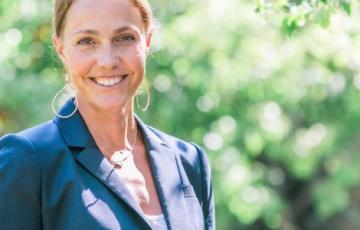
Caroline
In November of 2004, I was in the very best shape of my life. A few months prior, I had run my fastest marathon in San Diego, beating out all of my previous six finishing times in Austin, Nashville, Dallas, New York, and Boston. One month prior, I had completed the Los Angeles triathlon, finishing in the top bracket in my age division. I was even in the process of training to climb Mount Kilimanjaro with my brother. Then my entire world was turned upside down.